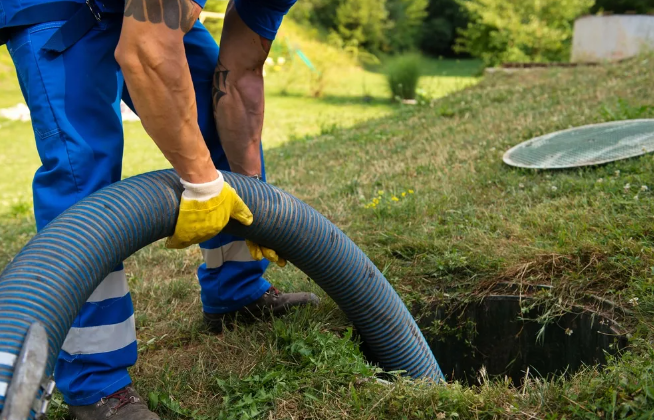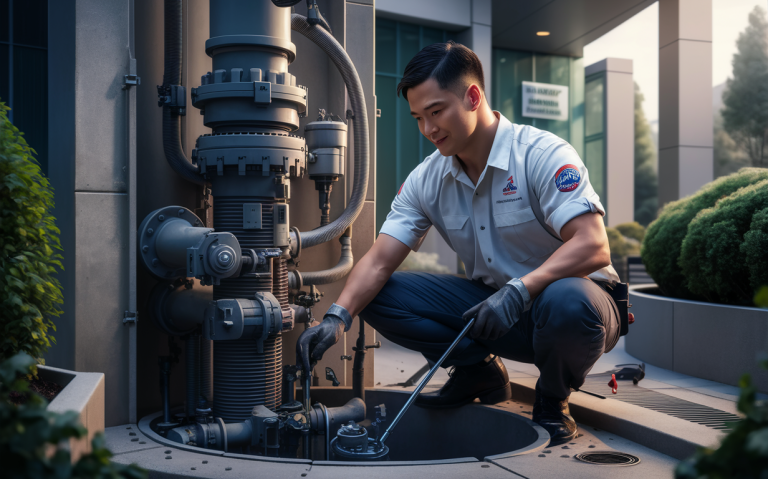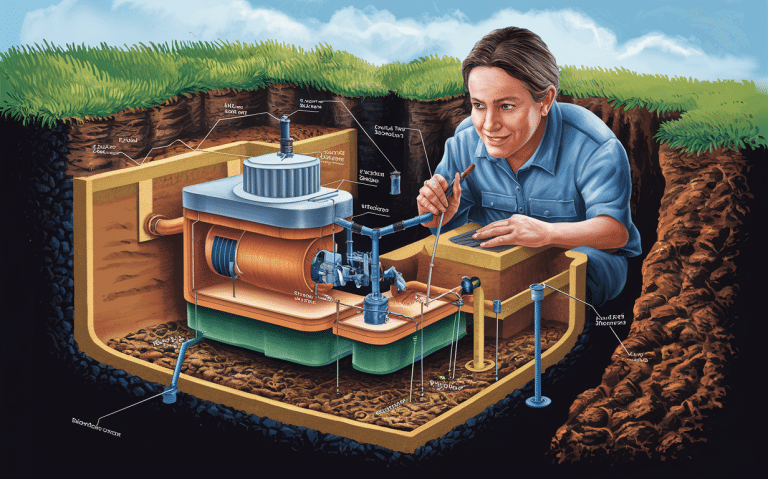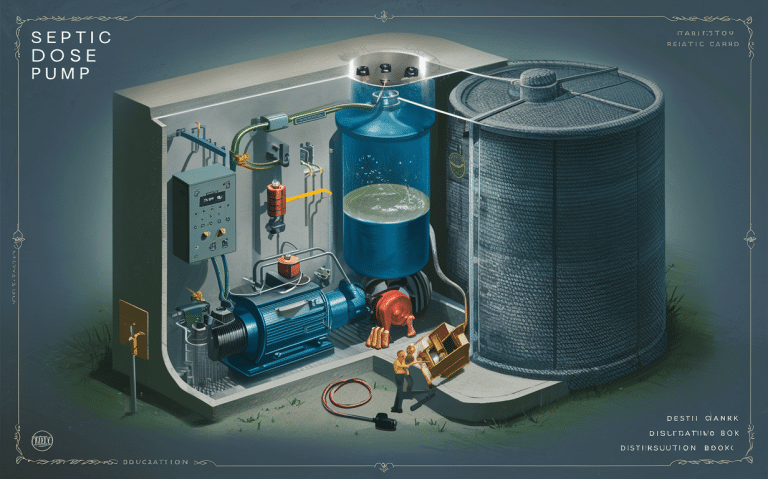The Importance of Regular Septic Tank Maintenance: A Complete Homeowner’s Guide
The importance of regular septic tank pumping maintenance is crucial for preventing costly repairs, enhancing system efficiency, protecting health, and extending your septic system’s lifespan. Understanding proper maintenance can save homeowners thousands in emergency repairs.
Table of Contents
Benefits of Importance of Regular Septic Tank Pumping Maintenance

The importance of regular septic tank pumping maintenance is crucial for ensuring the longevity and efficiency of your septic system. This essential practice not only prevents costly repairs but also protects your property and the environment.
By scheduling routine pumping, homeowners can avoid system malfunctions, sewage backups, and unpleasant odors while also extending the lifespan of their septic systems. Moreover, regular maintenance contributes to environmental preservation by minimizing the risk of groundwater contamination.
In this discussion, we will explore the myriad benefits of maintaining a consistent septic tank pumping schedule and why it should be a priority for every property owner.
Modern septic tank systems offer several advantages for homeowners:
- Cost-effective wastewater treatment
- Environmental sustainability
- Long-term durability (concrete septic tanks can last 20-30 years with proper maintenance)
- Independence from municipal sewer systems
- Lower monthly utility costs
Key Takeaways
- Prevents costly repairs: Regular pumping avoids expensive emergency repairs.
- Enhances system efficiency: Keeps your septic system running smoothly.
- Protects health and environment: Reduces the risk of contamination.
- Extends system lifespan: Prolongs the operational life of your septic system.
- Compliance with regulations: Helps meet local health and safety standards.
How Often Should You Pump Your Septic Tank?
The frequency of septic tank pumping depends on several factors, including tank size, household size, and usage habits. A general guideline is to pump every 3 to 5 years. However, homes with larger families or higher water usage may require more frequent pumping. Understanding the importance of regular septic tank pumping is essential for maintaining a healthy septic system and preventing costly repairs or failures.
The question “Why do septic tanks need to be pumped?” is common among homeowners. Pumping removes accumulated solids and sludge that can’t naturally decompose, preventing system overload and failure. For routine septic tank pumping, costs typically range from $250-$500, varying by location and tank size.
Recommended Pumping Schedule Based on Household Size

Your septic pump tank system requires regular maintenance based on:
- Tank capacity
- Presence of garbage disposals
- Age of system
- Local regulations
- Household size and water usage
| Household Size | Tank Size (gallons) | Pumping Frequency |
|---|---|---|
| 1-2 people | 1,000 | Every 5 years |
| 3-4 people | 1,000 | Every 3-4 years |
| 5-6 people | 1,500 | Every 2-3 years |
| 7-9 people | 2,000 | Every 1-2 years |
Preventing Costly Repairs
Regular septic tank pumping is a proactive measure to prevent costly repairs. When solids build up in the tank, they can clog the drain field, leading to backups and potential system failure. Repairing or replacing a malfunctioning septic system can be significantly more expensive than routine maintenance.
For homes with sewer lift stations, professional maintenance is particularly crucial. If you need sewer lift station repair near me, contact certified professionals immediately to prevent system failure.
Enhancing System Efficiency
A well-maintained septic system operates more efficiently. Regular pumping removes the accumulated solids and sludge, ensuring that the system processes wastewater effectively. This efficiency translates to fewer issues and longer intervals between servicing.
Protecting Health and the Environment
A failing septic system can pose serious health risks and environmental hazards. Untreated sewage can seep into groundwater, contaminating drinking water sources and local ecosystems. Regular pumping reduces the risk of such contamination, protecting both public health and the environment.
Extending the System’s Lifespan
Routine maintenance, including regular pumping, can significantly extend the lifespan of your septic system. Just like any other home investment, taking care of your septic system ensures it continues to function correctly for many years. This proactive approach can save homeowners from the headache and expense of premature system failure.
Compliance with Regulations
Local health and safety regulations often require homeowners to maintain their septic systems. Regular pumping helps ensure compliance with these regulations, avoiding potential fines and legal issues. Staying on top of this maintenance task demonstrates responsible homeownership and community stewardship.
Signs Your Septic Tank Needs Pumping
While routine pumping is recommended, being aware of the signs that your septic tank needs immediate attention is also crucial. Here’s what to watch for:
- Slow drains or toilets
- Unpleasant odors around the property
- Pooling water in the yard
- Gurgling sounds in the plumbing
- Sewage backups in the home
Common Signs and Causes of Septic Tank Issues
| Sign | Possible Cause |
|---|---|
| Slow drains/toilets | Full tank or clogged pipes |
| Unpleasant odors | Excessive waste buildup or leaks |
| Pooling water | Drain field issues or tank overflow |
| Gurgling plumbing | Partial clogs or air trapped in pipes |
| Sewage backups | Full tank or severe blockages |
Steps to Take if You Notice Issues
If you notice any of the signs mentioned, it’s essential to take action promptly:
- Schedule an inspection: Contact a professional to assess the situation.
- Limit water usage: Reduce household water usage to prevent further issues.
- Avoid harsh chemicals: Do not use harsh chemicals that may harm the septic system.
- Document issues: Keep a record of any problems and maintenance activities.
DIY Maintenance Tips
While professional services are vital, there are some DIY maintenance tips to help keep your septic system in good shape:
- Monitor water usage: Be mindful of water usage to prevent overloading the system.
- Avoid flushing non-biodegradable items: Do not flush items like wipes, diapers, or feminine hygiene products.
- Use septic-safe products: Choose cleaning and personal care products that are safe for septic systems.
- Inspect regularly: Regularly check for signs of leaks or issues around the septic tank area.
Importance of Professional Services
DIY measures can help, but professional septic services are irreplaceable. Understanding the importance of regular septic tank pumping is crucial, as professionals have the equipment and expertise to conduct thorough inspections, accurate diagnoses, and effective treatments.
They also handle hazardous waste safely, ensuring compliance with environmental regulations. Relying on experts not only enhances the performance of your septic system but also protects your property and the environment.
How often does a septic tank need to be pumped? While the general guideline is 3-5 years, factors like household size and usage patterns may require more frequent maintenance. Professional inspections can help determine your optimal pumping schedule.
Benefits of Hiring United Sewer & Septic
United Sewer & Septic offers reliable and experienced septic services in Middletown, NY, and surrounding areas. With over 30 years of industry experience, we provide comprehensive septic solutions, including:
- Septic tank pumping
- Septic system inspections
- Septic repairs and installations
- Sewer repairs and replacements
- Camera inspections for accurate issue detection
Common Myths About Septic Tank Maintenance
There are several myths about septic tank maintenance that can lead to unnecessary problems. Let’s debunk a few:
- Myth: Septic systems never need maintenance.
- Fact: Regular maintenance is crucial for system longevity and efficiency.
- Myth: Additives eliminate the need for pumping.
- Fact: While some additives might help, they do not replace the need for regular pumping.
- Myth: All household waste can be flushed down the septic system.
- Fact: Non-biodegradable items can cause clogs and damage the system.
Top Tips for Maintaining Your Septic System
- Schedule regular inspections and pumping
- Monitor water usage to avoid overloading
- Use septic-safe household products
- Avoid flushing non-biodegradable items
- Educate household members about proper septic care
Understanding the Septic System Components
A better understanding of your septic system can help you maintain it effectively. The main components include:
- Septic tank: Stores solids and allows wastewater to separate and flow to the drain field.
- Drain field: Distributes the treated wastewater into the soil.
- Baffle: Prevents scum and sludge from escaping the tank and clogging the drain field.
- Pipes: Transport wastewater from the house to the septic tank and from the tank to the drain field.
How United Sewer & Septic Can Help
United Sewer & Septic offers a range of services to keep your system running efficiently:
Routine pumping: the importance of regular septic tank pumping and sewage systems is crucial to prevent the buildup of solids and maintain optimal performance. This service helps extend the lifespan of your system and ensures it operates efficiently.
Inspections: Periodic inspections by our certified technicians can identify potential issues before they escalate into major problems. We thoroughly evaluate the condition of your system, including the tank, pipes, and drainage field, to ensure everything is functioning correctly.
Repairs: If any damages or inefficiencies are detected during an inspection or routine maintenance, our skilled team can promptly address them. We offer comprehensive repair services to restore your septic system to optimal working condition, using high-quality materials and industry-approved methods.
Installations: For new construction or replacement of existing systems, our experts can handle the installation process with precision and care. We follow all local regulations and best practices to ensure your new septic system is properly sized, positioned, and installed for long-lasting performance.
Key Takeaway
The importance of regular septic tank pumping is essential for maintaining a healthy, efficient, and long-lasting septic system. By understanding the importance of this maintenance task and recognizing the signs of potential issues, homeowners can prevent costly repairs and protect their health and the environment.
United Sewer & Septic is here to provide expert services, ensuring your septic system remains in top condition.






